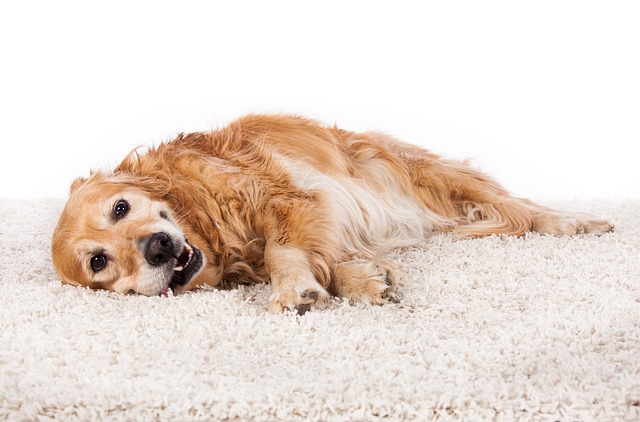
How can I tell if my dog's heatstroke is serious
Let’s be real: It’s a sticky August morning in Los Angeles, and you took your 2-year-old Golden Retriever, Max, for a walk a little later than usual
Watching your Golden Retriever bound through the park, tongue lolling as they chase a frisbee, it’s easy to take their vitality for granted. But understanding what “healthy” looks like in these gentle giants goes beyond just a wagging tail. Knowing the subtleties can mean catching issues early—and keeping them in step with local regulations that protect both your pet and community.
A healthy Golden Retriever starts with consistent appetite. They’ll hover near their bowl at mealtimes, eager to crunch through their kibble or lap up wet food, and finish most of what’s offered. Sudden disinterest in food, or scarfing down meals but vomiting afterward, could signal anything from an upset stomach to something more serious. It’s not just about their comfort—many places, like parts of Germany, require pets to maintain a healthy weight to meet animal welfare standards, so monitoring their intake ties directly to staying compliant. Keep an eye on water intake too; a steady drinker who suddenly guzzles or ignores their bowl might be trying to tell you something.
Their energy and mood are just as telling. A healthy Golden will nudge your hand for pets, dart after squirrels during walks, and greet strangers with that signature friendly nudge. Lethargy—like sleeping through their favorite playtime or avoiding the park—isn’t normal, even for older dogs. In the UK, for example, dog wardens often note that overly listless pets are more likely to have unaddressed health issues, which can sometimes lead to checks on owners’ care routines. It’s part of why staying attuned to their energy levels isn’t just kind—it helps you stay on the right side of local animal welfare laws.
 Take a closer look at their coat and skin during those post-walk snuggles. A healthy Golden’s fur is thick, shiny, and free of bald patches or excessive dandruff. Run your hands over their body weekly; you’re checking for lumps, ticks, or redness—common signs of trouble. Their ears should smell fresh, not yeasty, and their gums should be pink (pale or red gums can mean anemia or infection). These small checks are easy to fit into your routine and can prevent issues that might violate regulations in places like California, where neglect of basic grooming can lead to fines.
Take a closer look at their coat and skin during those post-walk snuggles. A healthy Golden’s fur is thick, shiny, and free of bald patches or excessive dandruff. Run your hands over their body weekly; you’re checking for lumps, ticks, or redness—common signs of trouble. Their ears should smell fresh, not yeasty, and their gums should be pink (pale or red gums can mean anemia or infection). These small checks are easy to fit into your routine and can prevent issues that might violate regulations in places like California, where neglect of basic grooming can lead to fines.
Pay attention to bathroom habits too. Regular, firm stools and consistent urination (not too frequent, not too sparse) are good signs. Straining or unusual colors (like blood in urine) need a vet’s attention fast. And don’t skip those annual vet visits—they’re not just for peace of mind. In many European countries, updated rabies vaccines and health certificates are legal requirements, and a vet can spot early signs of hip dysplasia, a condition Goldens are prone to, before it worsens.
Your Golden’s health is a mix of daily observations and responsible care that aligns with local rules. From their morning zoomies to the way they curl up at your feet, every little sign tells a story. Keep watching, stay consistent with check-ups, and you’ll both enjoy many happy, healthy years together—right where you belong.

Let’s be real: It’s a sticky August morning in Los Angeles, and you took your 2-year-old Golden Retriever, Max, for a walk a little later than usual

You're enjoying a summer afternoon at the park when you notice your dog has stopped panting and appears disoriented - their gums are bright red

Let’s paint the picture: You’re in your Denver apartment, watching your 4-year-old Boston Terrier, Ruby, plop down mid-play session with her favorite toy

Many dog owners notice their pets nails seem shorter after regular walks,but how much does this daily activity actually help?The answer depends on where you walk—concrete sidewalks or asphalt streets gently file nails as a dog's paws hit the ground

Most dog owners notice their pup scooting across the carpet at some point, but few connect it to impacted anal glands. These small sacs near a dog’s rectum secrete a scent for marking territory

Most vets agree that regular dog teeth cleaning is key to avoiding painful dental issues later. For healthy adult dogs, a professional cleaning at the vet’s office every 12 to 18 months usually works well.